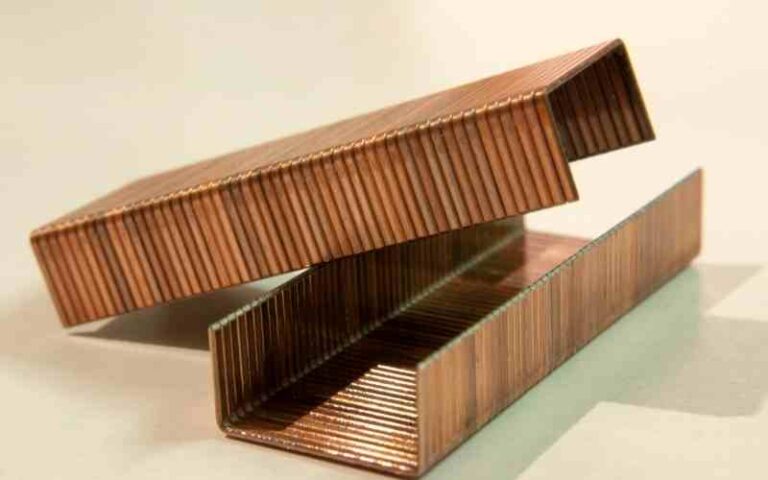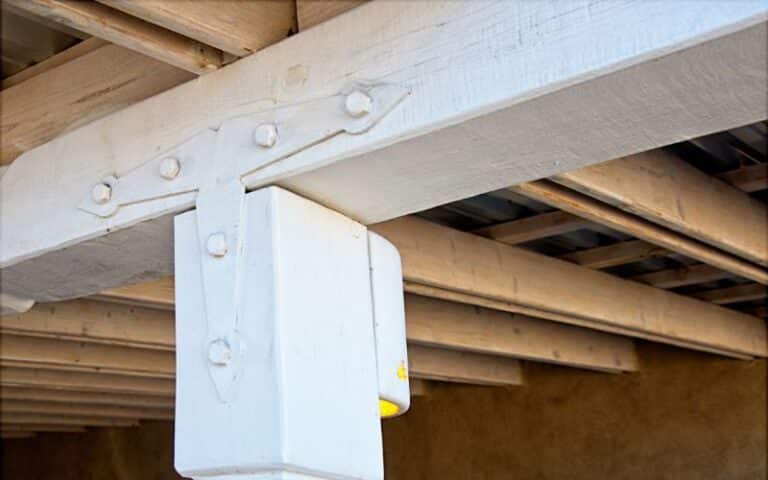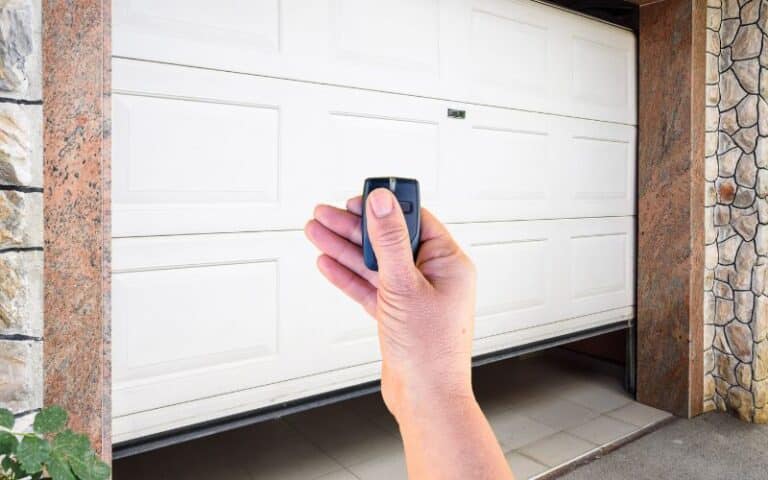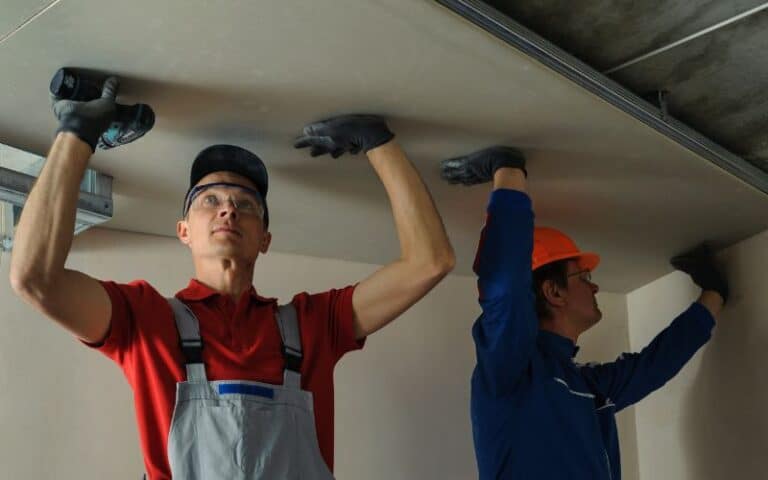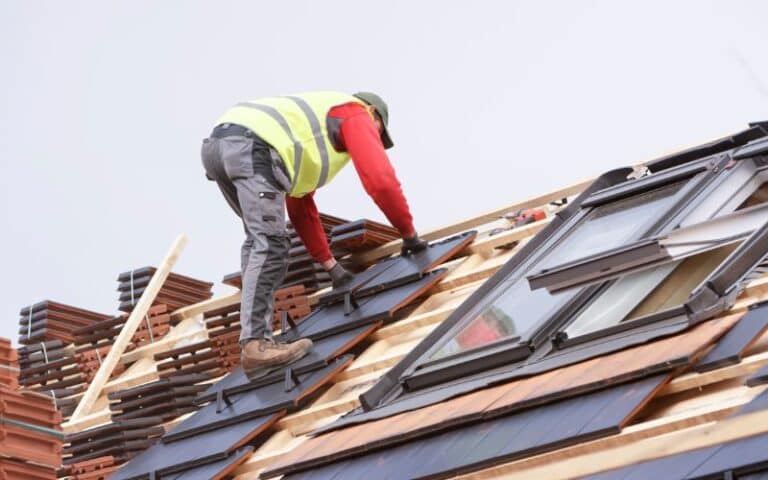A roof inspection or a roof certification allows homeowners to assess the current condition of their roofs and provides them with an idea of what they can expect from their roofing system in the coming few years.
Typically, you can obtain a 5-year or a 2-year roof certification from any licensed roof inspector.
Most homeowners usually look to get their roofs certified for the purposes of obtaining: documentation to present to mortgage lenders, third-party proof to inform prospective buyers of the house about the expected lifespan of the roof, or peace of mind before buying a house that the roofing system is in good shape.
Ready for a Roofing Quiz?
What is A 2 Year Roof Certification?

A roof certification is a letter that certifies that a roof or roofing system, as per its existing condition, is estimated to perform efficiently for a certain period of time.
It requires a roof inspection from a licensed roof inspector who evaluates and analyzes the roof and prepares a report that details the condition of its surface and all of its components.
A 2-year roof certification is a roof certification that assigns a lifespan of two years to a roof.
How Much Does A 2-Year Roof Certification Cost?
The average cost for a 2-year roof certification in the United States ranges from $75 to $350.
There are a number of factors that determine how much you end up paying against a 2-year roof certification, including:
– The area you dwell in
– The size of the building
– The purpose of the certification
– The roof inspector you opt for, etc.
How Much Time Does A Roof Inspection For A 2-Year Roof Certification Take?
Whether you need a 2-year roof certification or a 5-year one, the time a roof inspection process takes is the same. The average time a roof inspection requires ranges between 45 minutes and 3 hours.
There are several factors that impact the total time it takes for a roof inspector to complete their evaluation process, including:
– The level of ease of accessibility
– Whether it is a drone roof inspection, physical roof inspection, or infrared roof inspection
– The type of roof or roofing materials
– Inclusion or non-inclusion of the attic in the inspection
– The roofer or roofing company you hire, etc.
The average time after a roof inspection in which homeowners can expect to receive their certification letters and inspection reports (if ordered) is 5 to 9 days.
Many homeowners often wonder if they can perform a roof certification or inspection by themselves.
While the latter can be carried out by an untrained individual, the former certainly cannot, as estimating the expected lifespan of a roof requires data analysis and a number of expert calculations that only a trained and professional roofer can perform.
I, as a matter of fact, always recommend all homeowners perform a roof inspection of their roofs at least twice a year and after a major weather event in their area.
It is true that an untrained person cannot check the components of a roofing system as thoroughly as a professional roofing inspector can, but not all people can afford to pay a roofer twice a year.
When it comes to the frequency of roofing inspections, the best way to go about it is to go for a combination of DIY and professional ones.
While you inspect your roof yourself twice or thrice a year, you can hire a roof inspector to check the condition of your roof once every two to three years for a detailed evaluation.
A 2-year roof certification is more popular with homeowners whose roofs are on the older side. This is because they have an idea that their roofs are not in a top-notch shape, and they just want to make sure that they have a couple of years to save up for a new roof.
Most of the homeowners that are looking to sell their homes also go for a 2-year roof certification unless they are very confident about the condition of their roofing system.
However, a 2-year roof certification is not ideal for a home buyer, as when you buy a house, you expect its roof to perform efficiently for at least five to ten years.
If small repairs and touch-ups are made to a roof’s outer surfaces and areas, it can achieve a 2-year lifespan certification, even though its inner materials and plywood under-layer might be in really bad shape.
Even if a 2-year roof certification is a warranty for leaks and wind damages, and the roofing company fixes them without charging you, you will have to bear the repair or replacement costs of leak damages, like a destroyed carpet, damaged furniture, or sheetrock, etc.
Basically, the warranty will only temporarily band-aid the situation.
As soon as the duration of the certification or warranty expires, the buyer of the house will need to pay for all roof repairs themselves.
And if roof replacement is needed, they are in for a huge dent in their wallet as the average roof replacement currently in the US ranges between $6,000 to $20,000.
For this reason, I always recommend homebuyers to either get the roof of the house they are considering buying inspected or go forward with the deal only if the roof certification is a five-year one and a warranty.
If the roof inspector you hire informs you that the roof of the house is on its last legs, you should try to bargain a roof replacement into the deal.
However, on the other hand, a 2-year roof certification is ideal for homebuyers in a number of other cases. The number of years of validity you want for your roof certification depends on the situation you are in.
But besides the life of the certification, there are a number of advantages to having a roof certification.
Benefits of A Roof Certification
#1. A Roof Certification Enables You To Make Crucial Roof Repairs
It is not just house buyers that benefit if the roof of the house they are considering buying does not require major repairs but the sellers of the house as well.
You see, when you, as a seller of the house, make sure that your roof is in a top-notch shape and condition, you can demand a higher price for the property, and potential buyers do not get driven away from it.
The first and the foremost advantage of getting your roof inspected and certified is that you get a certification only after the roof inspector is convinced that your roof will last or perform efficiently for a specific period of time.
If they do not think that it is the case, you get to know the issues with your roofing system, and you can get them repaired.
Related: 5 Year Roof Certification
#2. Homeowners and Buyers Attain Peace of Mind
When potential buyers of a house see a roof certification, they become more likely to proceed with the deal as they attain peace of mind that they will not have to make either major or minor roofing expenses for some time to come.
As a matter of fact, many mortgage lenders do not finance homebuyers unless they present a roof certification.
Sellers can also avoid requests for huge bargains and additional roof repairs when they list their house with a roof certification.
Similarly, homeowners can also benefit from a roof certification by making sure that their roof will not be responsible for consuming dough from their wallets for a few years.
If you are not a roofing professional, it is not very likely that you will be able to identify issues and problems with your roofing system until it is too late.
Leaks are only one roofing problem and overflowing, or blocked gutters, pest infestations, moss buildup, and stranded water are only some of the roofing issues.
There are a number of factors that can cause your roof as well as your property’s insulation to get negatively affected.
A defective roof or one with a weak structure can be a serious risk for the occupants of a building. Furthermore, inefficient roofing systems translate into higher energy costs, heat loss, and an unhealthy indoor atmosphere as well.
Whether you go for a 1 year, 3 years, 5 years, or a 2-year roof certification, it can protect you and your finances against any unfortunate event that may take place during the term of validity of the certification.
It not only prevents further damages to your property but enables homeowners to secure your investment as well.

